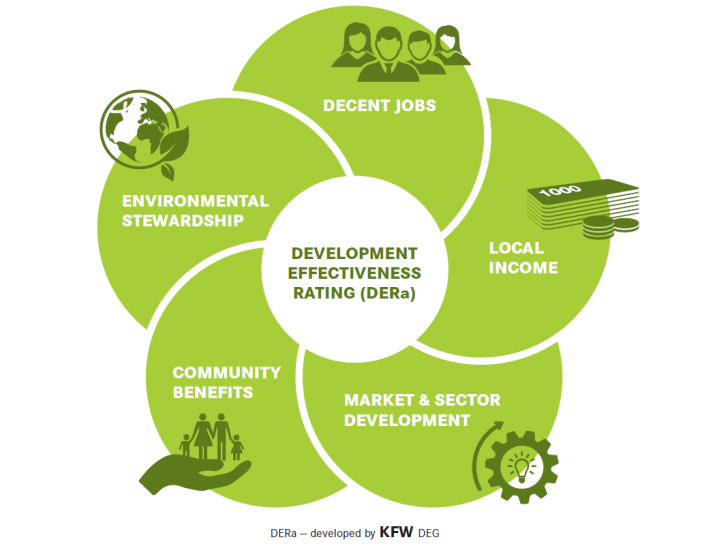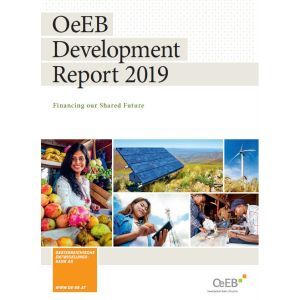The current Development Report shows how OeEB contributes to sustainable development. Over 175,000 small borrowers and SMEs received access to finance through OeEB's projects. By financing renewable energy projects, OeEB creates an important basis for economic growth.
In its current Development Report, OeEB shows how its projects contribute to sustainable development. Over 500,000 people are currently employed in all projects, companies and financial institutions that received OeEB financing. Around 175,000 small borrowers and SMEs in developing and emerging countries gained access to loans. OeEB, which works on behalf of the Austrian Federal Ministry of Finance, has been contributing to economic development in developing and emerging countries since 2008. In addition to providing financing for SMEs, OeEB focuses on financing renewable energy projects in order to make a sustainable contribution to climate protection and to improving energy supply.
OeEB uses a new tool to measure the impact of its projects: the Development Effectiveness Rating (DERa), which was developed by KfW DEG (Deutsche Investitions- und Entwicklungsgesellschaft mbH). This evaluates the development effects of OeEB's projects and their contribution to the United Nations' Sustainable Development Goals (SDGs).
Via the growth engine SMEs, 55% of OeEB's projects contribute to the development goal "Decent Work and Economic Growth" (SDG 8); 12% of projects to the goal "Industry, Innovation & Infrastructure," (SDG 9) and 29% to the goal "Affordable and Clean Energy" - two important prerequisites for economic growth.
Fair jobs
"Guaranteeing fair conditions for employees is just as important as creating jobs. We ensure that our projects comply with international standards and, if necessary, finance training courses to ensure these standards are met," explains Michael Wancata, Member of OeEB’s Executive Board. A total of 5,000 people took part in these training courses.
41% of OeEB's total portfolio of EUR 1.37 billion is invested in the microfinance sector as well as in micro, small and medium-sized enterprises (MSME). The financing provided by OeEB enables companies to generate additional local income. In addition to wages, taxes are paid or local suppliers used, in short: the local economy benefits.
Another aspect that OeEB takes into account in its financing is gender equality. "More than a quarter of the employees in projects financed by us are women," says Sabine Gaber, Member of OeEB's Executive Board. "In 2019 alone, we provided EUR 130 million in loans that contributed to the economic empowerment of women."

Measuring effects - increasing impact
Since 2019, OeEB has been using the Development Effectiveness Rating (DERa) to measure the impact of its projects. DERa takes into account a total of five categories, in addition to the number and quality of jobs created, these are: generation of local income, development of markets and sectors, environmental stewardship and benefits for local communities. Before the start of a project, DERa creates a forecast of the expected impact. Progress is evaluated annually. Changes can be recorded and analysed and impulses can be set to improve the impact. With accompanying technical assistance measures, OeEB can support its customers, for example, in improving their environmental and social management system, which has a positive effect on the DERa score. Overall, OeEB’s projects achieved an average rating of 'good' in 2019.
About OeEB
Oesterreichische Entwicklungsbank AG (OeEB) has been operating as the Development Bank of Austria since March 2008. It specialises in the provision of long-term finance for the implementation of private sector projects in developing countries which create sustainable development. Additionally, OeEB provides technical assistance, which can be used to enhance the developmental impact of projects.
